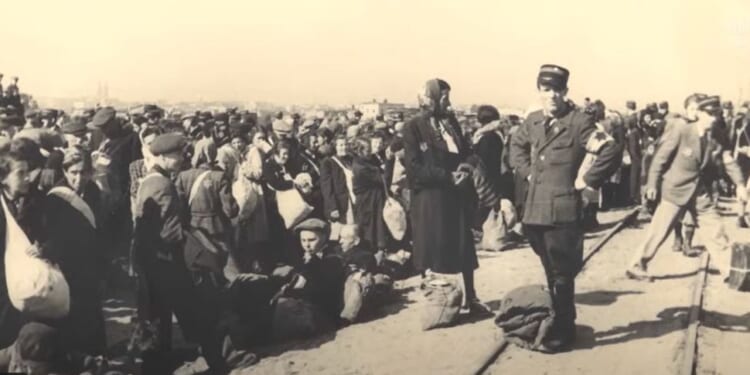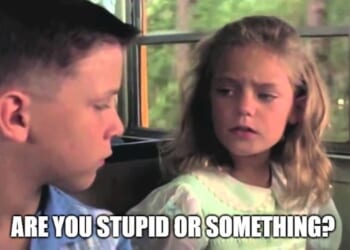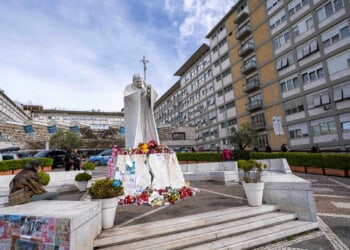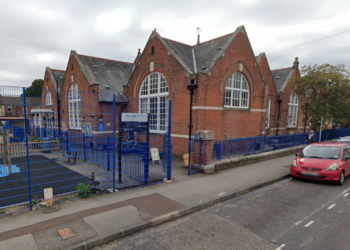I’ve never met a Holocaust survivor without feeling fear — not of them, but of what happens when they’re gone. Their voices, their memories, their warnings — they’ve carried the burden of truth for nearly a century. But that truth is slipping through the cracks of the American education system. When it vanishes, so does our last real defense against the unthinkable: another Holocaust.
If we do not tell the truth, others will tell the lie. Holocaust denial and distortion are already on the rise.
Most American students today can name TikTok influencers and viral trends without hesitation, but ask them about the Holocaust and many will draw a blank. That’s not a joke — it’s a national tragedy.
A 2020 survey by the Claims Conference revealed that 63 percent of millennials and Gen Z did not know that six million Jews were murdered during the Holocaust. Nearly half couldn’t name a single concentration camp, and more than one in ten believed Jews were responsible for the Holocaust.
In New York — home to the largest Jewish population outside of Israel — 58 percent of respondents couldn’t identify even one Nazi ghetto or extermination site.
We are witnessing the consequences of that neglect. On college campuses across the country, antisemitism is not just growing — it’s the norm. Students chant “Globalize the Intifada” without understanding the historical weight or the genocidal implications of those words. They rip down posters of kidnapped Israeli children as if the lives behind those faces are political abstractions, not human beings. They glorify violence against Jews as “resistance” and reframe terror as “justice.”
This kind of moral inversion doesn’t arise in a vacuum. It’s the direct result of generations being raised without a basic understanding of what happens when hatred is left unchecked.
The issue isn’t that Holocaust education is nonexistent. It’s that in far too many schools, it’s empty. Students may encounter a brief paragraph on the Holocaust buried somewhere between lessons on D-Day and the atomic bomb. Only 19 U.S. states currently mandate Holocaust education, and even among those, the quality of the curriculum varies wildly.
Many teachers are untrained. Some avoid the subject altogether, fearing controversy or discomfort. Others rush through it without diving into the historical context, the mechanisms of genocide, or the terrifying reality that in many instances ordinary people — neighbors, teachers, civil servants — enabled and carried out these atrocities.
Trump and the Universities
In 2019, President Donald Trump signed an executive order extending Title VI of the Civil Rights Act to protect Jewish students facing antisemitic discrimination on college campuses. For the first time, federal funding for universities could be explicitly tied to their handling of antisemitism.
That wasn’t a symbolic gesture — it was a serious policy that forced elite institutions like Harvard and Columbia to reckon with the rise in campus hostility toward Jews. But policy alone cannot fix what the classroom fails to address. If students are never taught what antisemitism looks like — or what it leads to — then no law will be enough to stem the tide.
We need to stop treating Holocaust education like an afterthought. It’s not a side note in history — it’s the backbone of our understanding of human rights, moral responsibility, and the consequences of indifference. If we want future generations to grasp why “Never Again” is more than a slogan, we have to show them what actually happened.
If we do not tell the truth, others will tell the lie. Holocaust denial and distortion are already on the rise across social media, in academic circles, and even in mainstream discourse. There is no fighting antisemitism without education. No moral clarity without memory, and no future for the decency of our society — if the next generation grows up not knowing what happens when the world looks away.
READ MORE from Gregory Lyakhov:


![Jasmine Crockett Justifies Mass Illegal Immigration With Bizarre Argument [WATCH]](https://www.right2024.com/wp-content/uploads/2025/03/1742007023_Jasmine-Crockett-Justifies-Mass-Illegal-Immigration-With-Bizarre-Argument-WATCH-350x250.jpg)
![NYC Tourist Helicopter Falls into Hudson River, Siemens Executive and Family Among Those Killed [WATCH]](https://www.right2024.com/wp-content/uploads/2025/04/NYC-Tourist-Helicopter-Falls-into-Hudson-River-Siemens-Executive-and-350x250.jpg)
![Biden Drops Racial Slur During First Public Speech Since Leaving Office [WATCH]](https://www.right2024.com/wp-content/uploads/2025/04/Biden-Drops-Racial-Slur-During-First-Public-Speech-Since-Leaving-350x250.jpg)



![Green Day’s Cringe Trump Diss Ends in Fire and Evacuation [WATCH]](https://www.right2024.com/wp-content/uploads/2025/04/Green-Days-Cringe-Trump-Diss-Ends-in-Fire-and-Evacuation-350x250.jpg)
![Obama in 'Deeply Concerned' About Trump Removing Terrorist Sympathizers from Universities [WATCH]](https://www.right2024.com/wp-content/uploads/2025/04/Obama-in-Deeply-Concerned-About-Trump-Removing-Terrorist-Sympathizers-from-350x250.jpg)






